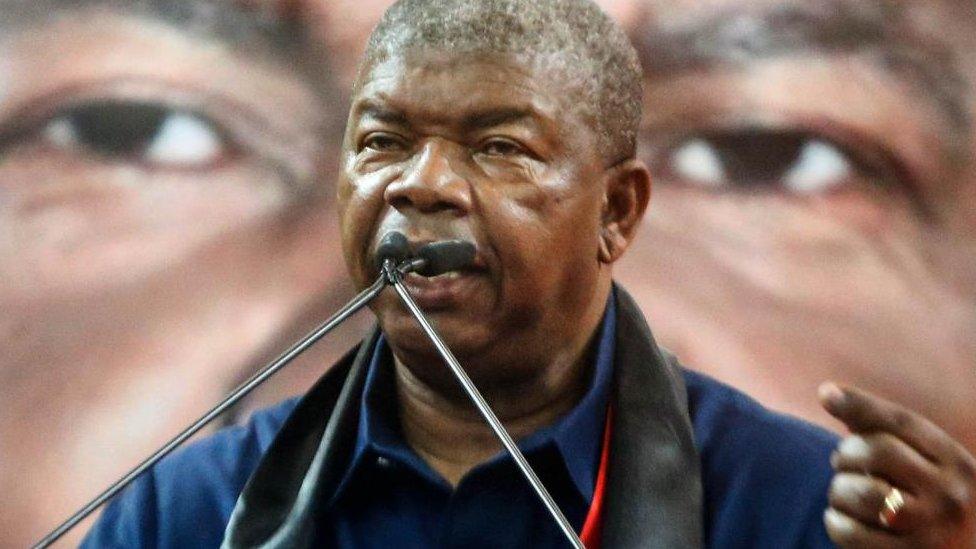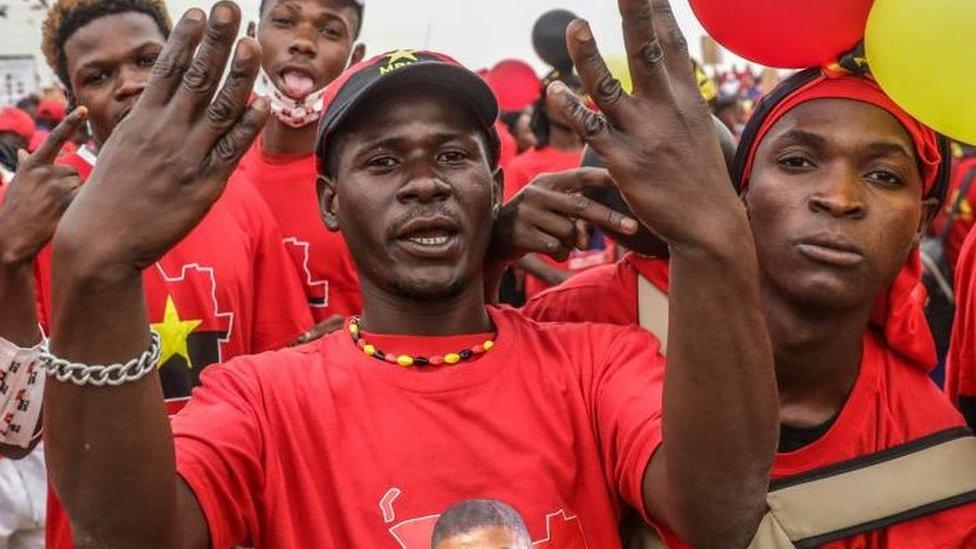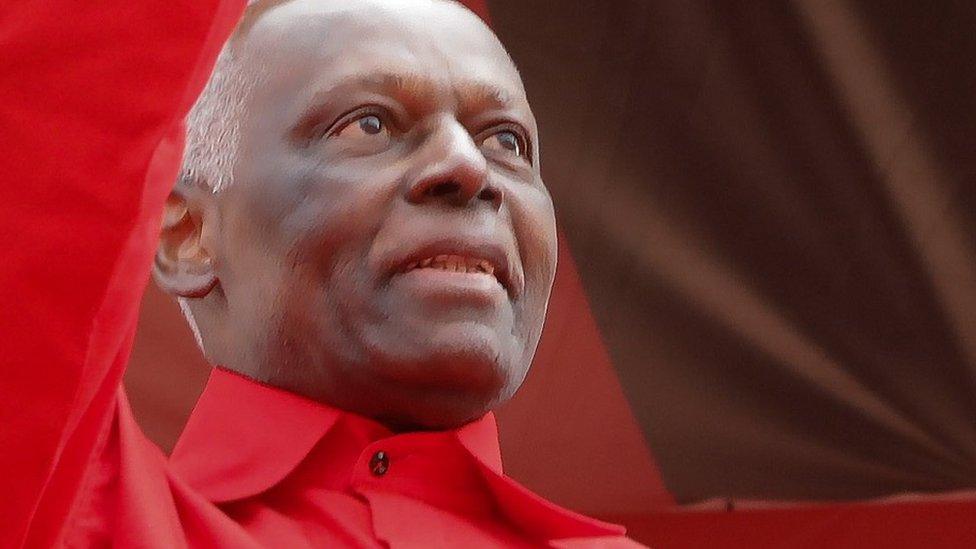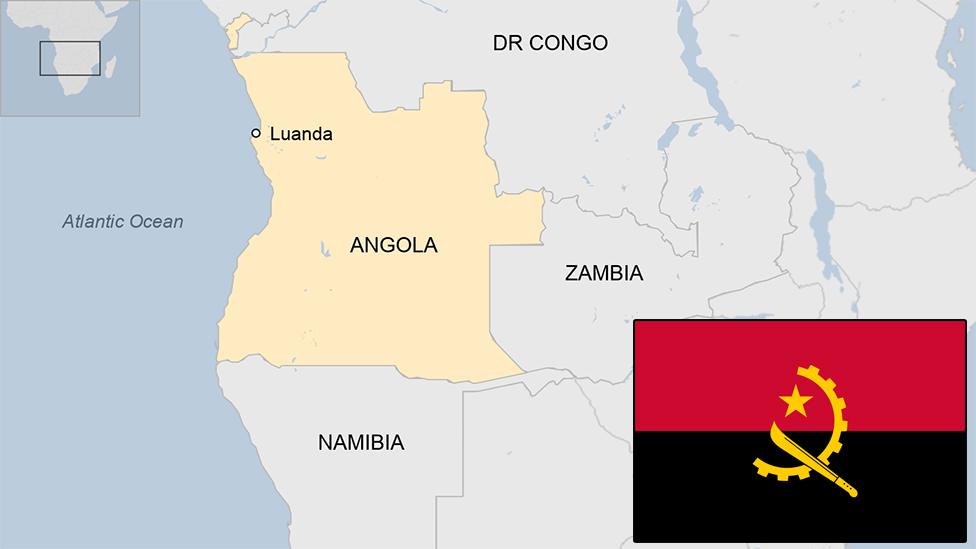Angola election: Ruling MPLA party looks set to hold off Unita challenge
- Published

President João Lourenço is set for a second term in office
Angola's governing MPLA party looks set to extend its almost 50-year-long stint in power, holding off a challenge from its former civil war enemy, Unita.
With more than 97% of the votes in Wednesday's election counted, the MPLA was polling about 51% against 44% for Unita, electoral officials say.
This would give President João Lourenço a second five-year term in office.
Unita said earlier it was considering contesting the results because they did not correspond to reality.
"We hope there can be common sense, we are not encouraging a rebellion, the process is not over, we must remain calm," senior Unita member Anastacio Ruben Sicato was quoted as saying by the AFP news agency.
Wednesday's poll had been billed as Angola's most closely-fought election since independence in 1975.
While the MPLA says it has a mandate to govern for the next five years, its vote is down from the 61% it gained in the previous elections in 2017, while Unita's share is sharply up from 27%, fuelled by high levels of poverty and youth unemployment.
And Unita gained a thumping victory in the capital, Luanda, where it took almost two-thirds of the vote, sending a strong message of dissatisfaction to the ruling party that cannot be ignored in the next term.
Security has been tightened in Luanda in case of any protests.
Despite Angola being rich in oil and minerals such as diamonds, many people have not benefitted from that wealth.
And while the 20 years of peace after a protracted civil war have been welcome, they have not brought the gains that many hoped for.
Angola's unemployment rate is around 30%, but among the youth that figure reaches 60%, official statistics say.
The MPLA has governed Angola since independence.
Mr Lourenço came to power in 2017 after long-standing leader José Eduardo dos Santos stood down.
His anti-corruption campaign has opened a rift with the Dos Santos family and their supporters, some of whom have been sent to prison.
His daughter, Isabel dos Santos, previously described as "Africa's richest woman" has been accused of corruption in Angola, but she denies it.
The former president died last month in Spain, and his body was repatriated last weekend. He is due to be buried on Saturday but some of his older children, including Isabel, will not attend as they still feel threatened by the Angolan government.
- Published24 August 2022

- Published8 July 2022

- Published21 February 2023
